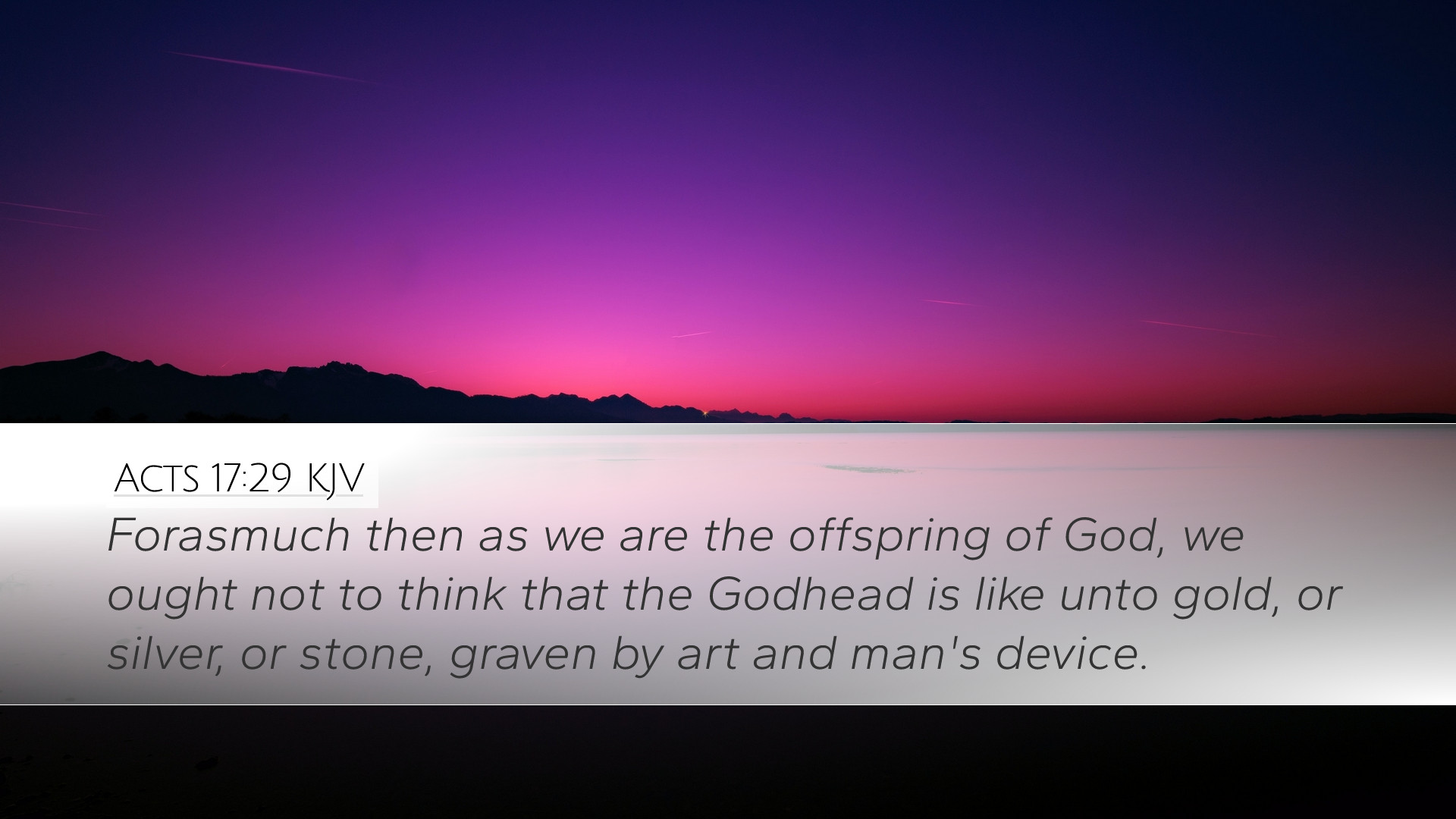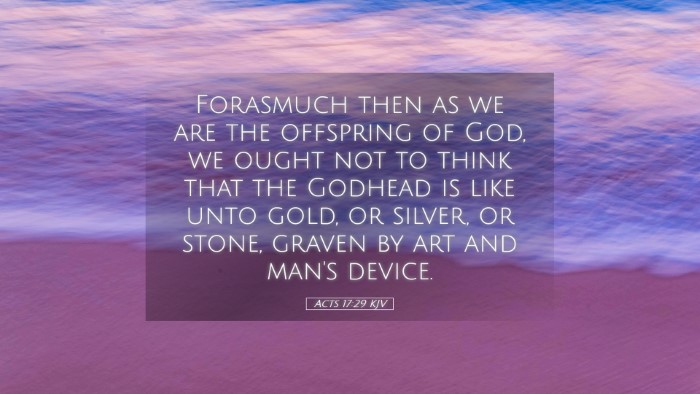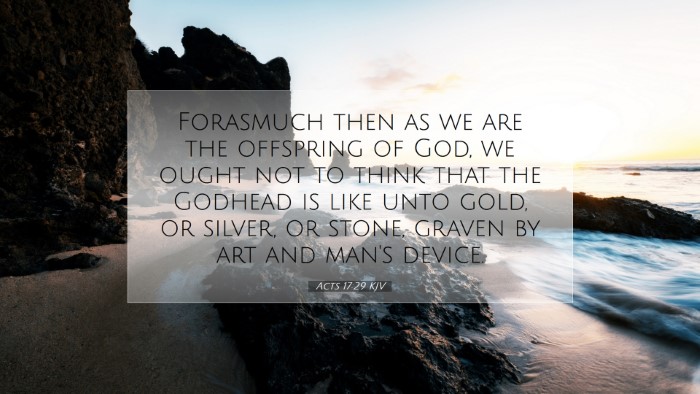Commentary on Acts 17:29
Verse: Acts 17:29 - "Being then God's offspring, we ought not to think that the Divine Being is like gold or silver or stone, an image formed by the art and imagination of man."
Introduction
The apostle Paul's address to the Athenian philosophers on Mars Hill presents a profound declaration of God's nature and the folly of idolatry. In this verse, he crystallizes the essence of true worship and God's transcendence over material representations. The insights derived from the commentaries of Matthew Henry, Albert Barnes, and Adam Clarke provide a rich theological tapestry for understanding how this verse speaks to the nature of God, humanity's relationship with Him, and the implications of idolatry.
The Nature of God
Divine Offspring
Paul asserts that humans are "God's offspring." This statement stresses our relationship with the Creator who has made us in His image (Genesis 1:26-27). Matthew Henry emphasizes that this idea should lead to a sense of dignity and responsibility among humans. He writes that being offspring of God implies a higher calling to live in righteousness and holiness.
Transcendence of God
Paul's declaration that God is not like "gold or silver or stone" brings forward the concept of God's transcendence and immutability. Adam Clarke elaborates on how God is incomparable and cannot be confined to the limitations of physical objects created by human hands. This aligns with the Old Testament teachings that emphasize God's uniqueness (Isaiah 40:18-20).
Idolatry Addressed
Rejection of Materialism
Paul's critique of idolatry serves as a vital reminder that God cannot be adequately represented by material items. Albert Barnes argues that the creation cannot replicate the Creator; hence, attempts to worship God through images are inherently flawed. This confrontation with the Athenian worldview exposes the inadequacy of relying on material objects for spiritual fulfillment.
Art and Imagination
Paul mentions the "art and imagination of man" as the source of idols. This reflects the human tendency to manipulate the divine narrative to fit personal or cultural expectations. Henry suggests that this manipulation leads to the degradation of true worship, as it distracts from the infinite nature of God and distorts our comprehension of who He is.
Theological Implications
Human Identity and Purpose
The acknowledgment that we are God's offspring carries significant theological implications regarding identity and purpose. Adams Clarke asserts that this nature implies that we are to seek after God and live in accordance with His will, rather than succumbing to created things. This understanding challenges believers to evaluate their allegiances and desires in light of their divine heritage.
Call to Worship in Spirit and Truth
John 4:24 instructs believers to worship in spirit and truth, which connects directly to Paul's message. As Barnes points out, true worship recognizes God's infinite nature and seeks genuine encounters with Him rather than superficial rituals. True spirituality involves a heartfelt response to God's character and revelation.
Application for Believers
Confronting Modern Idolatry
The questions raised by Acts 17:29 are equally relevant today, as modern believers must confront various forms of idolatry in the contemporary landscape. Henry underscores the need for vigilance against anything that becomes an alternative to God—whether it be material possessions, status, or even religious rituals void of genuine connection.
Living as God's Offspring
Embracing our identity as God's offspring calls for a life exemplified by holiness and devotion. Barnes notes that if we are indeed the children of God, our conduct should reflect His nature. This includes a commitment to love, service, and the pursuit of truth in all areas of life.
Conclusion
Acts 17:29 serves as a pivotal reminder of the nature of God and the call to reject idols in favor of true worship. Insights from the commentaries of Henry, Barnes, and Clarke challenge believers to rise above materialism and cultural distractions, embracing their identity as God's offspring. This verse not only shapes our understanding of God but defines our purpose and identity within His created order.


